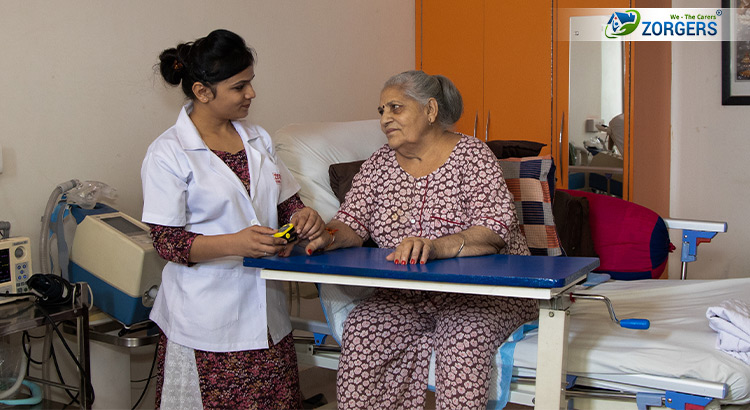How to communicate with an elderly person? Is it a difficult thing to do?
The process of communication with elderly people is not very difficult instead it requires some unique skills or strategies. Mainly the wide range of experience, along with cultural specifications of the elderly people makes them so stubborn and very peculiar in doing things.
Aging elders are not much open to adapting changes or following instructions. So there has to be some way to make them do a few things mainly when they are experiencing a certain disease or disorder. Making an elderly person doing simple things like eating recommended food on time, exercising, eating medicine, etc. can be a little tricky. However, professionally trained and reliable at-home caregivers are easily available today via online portals like Zorgers.
At home, the caregiver applies certain strategies that help in easing the communication process with elders. Those strategies can be learned by anyone like any family member of the patient although experienced professionals are not only trained for the same but also deal with a variety of such elder patients so it becomes easier for them to communicate.
How can full-time attention by healthcare professional/caregiver help in building better communication with an elderly person?
Elder people need the utmost attention just like a kid. A caregiver or a professionally trained healthcare person can actually help in dealing with stubborn elders who are not ready to listen to anyone neither their own kids even during the healing process after certain procedures or surgery. Such professionals know strategies or practically applicable ways to handle elder care at home. It helps the elders to recover, heal, and remain safe and also builds better communication connectivity with everyone.
Are there any strategies to follow which can help in communicating with our aging elders at home?
Yes, there are several strategies that can be applied to building better communication with the elderly person. However, every strategy cannot work the right way. So at times, several multiple approaches require action and the best one working can be continued. Some of those strategies are listed below:
1. Patience is the key to communication: Patience with compassion helps in dealing with an elderly person. Aging elders already go through a lot of changes that they deal to combat with every single day. From physical challenges to behavioral changes everything makes it tough for them. It can be easy to give up on them or get frustrated but patience, if opted in-depth, can be a solution.
2. Avoid ignorance and distractions: Being polite and slow while proving the information to an elder person is perceived well by them. Because they take time to absorb and process information and ignorance is something which makes them feel bad and irritated or actually unwanted. An elder person needs time and attention but with quality without any distraction of attention. So allow it and they will listen to you for sure.
3. Listen more and prefer eye contact: This is a thumb rule of building up a good communication bond both ways. Listen to your elders with patience because they might take time to finish the whole sentence. This makes them feel they are also important. In return, they will also listen to you and understand it in a better way.
4. Avoid being bossy: Any elder person dislikes being bossy and instructed all the time. It can make the communication a hurdle. As per psychologists, bossy behavior makes elderly people respond back with Three F’s- Flight, Flight, and Freeze. This can lead to a behavioral problem and arguments and stubbornness. So it’s advisable to avoid being bossy around them. Further to convey healthy messages it’s better to use “I, We, It” instead of “you”. Like I will help you exercise today, We need to get some fresh air so let’s go for a walk, etc.
5. Make things simple for them: It is good to provide one instruction at a time so that an elder person can process and accomplish it. Using short and simple sentences in a language they understand is best without making them uncomfortable.
Communication gets affected by the aging process in elders. The reasons could be any from sensory loss, memory declination, slow processing of information, or any particular disease, or even psychological factors like retirement from work, family separation, ignorance of care, depression, anxiety, or confronting any issues like fear of death, etc. It builds a paradox in the adult children’s life whose elder parents are not ready to listen and understand.
Almost everything has a fix and this problem of communication with aging elders can be resolved by the application of certain strategies. Every strategy cannot work for every person however, an experienced at-home care provider will certainly be able to apply the best suitable strategy in dealing with your loved elders at home who are just being little stubborn in listening to you.







Communicating with elders, especially those who may be suffering from dementia, is indeed a difficult task. And it requires empathy and a strong command over elderly psychology and physiological processes. Thanks for pointing out these details, it will surely help a lot of people take better care of their parents.
Thanking you for sharing the great information’s. This was an useful blog for Care Coimbatore is one of the leading primary health care service center providers in and around Coimbatore, based on measures of patient safety, quality, cost, patient satisfaction and staff engagement
Well written blog. Keep up the good work. It will surely help people commnicate efffectively with their elderly parents.